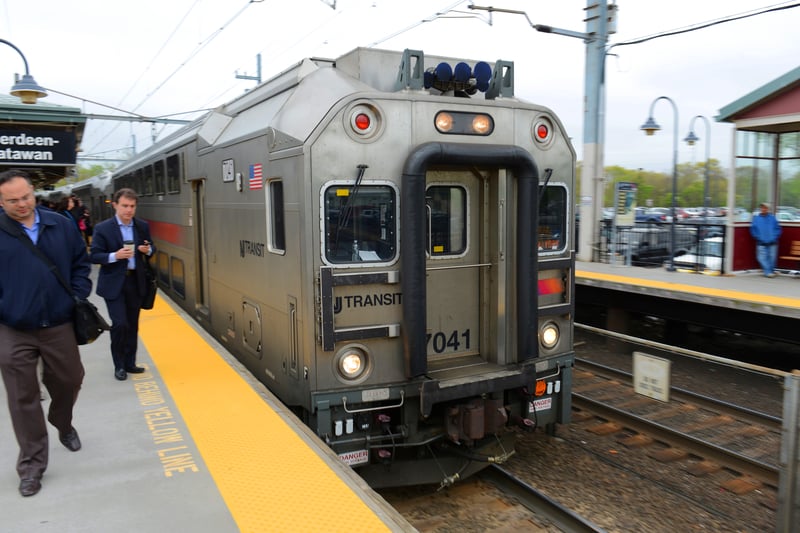ABERDEEN, N.J. — Governor Phil Murphy and NJ Transit President and CEO Kris Kolluri addressed the public Friday morning at the Aberdeen-Matawan train station, calling on striking locomotive engineers to immediately return to contract talks as New Jersey’s first rail strike in decades disrupted service for commuters statewide.
“We’re now roughly 10 hours into New Jersey’s first rail strike in decades,” Murphy said. “It did not have to come to this.”
0222He emphasized that NJ Transit and his administration had been negotiating in good faith for months and had previously reached a tentative agreement with union leadership in March.
Murphy noted that the March deal would have raised engineers’ hourly wages to match those at the Long Island Rail Road—within a 10-cent difference—and described it as “fair and fiscally responsible.”
However, despite public support for the agreement from the union at the time, a faction of engineers has since rejected the terms and walked off the job.
The governor stated that the strike, involving fewer than 400 engineers out of NJ Transit’s roughly 12,000 employees, had shut down the entire rail system, impacting thousands of daily commuters.
State vows no fare hikes or tax increases amid contract talks
Murphy firmly rejected the idea of resolving the dispute through fare hikes or increased taxes. “We can deliver a fair contract to every NJ Transit employee without abandoning our hardworking neighbors,” he said, vowing not to pass the cost of the strike onto riders or taxpayers.
He also positioned the ongoing contract negotiations as critical for the long-term financial health of NJ Transit, saying, “This is about the long-term future of NJ Transit well after I leave office.” The governor, who has about eight months left in his term, said the administration’s decisions are aimed at leaving a “strong state of health” for the next administration.
Murphy contrasted New Jersey’s approach to transit funding with other states, criticizing the MTA’s congestion pricing plans and citing SEPTA’s projected service cuts and fare hikes. “That will not be the case here in New Jersey,” he said.
Progress and frustrations highlighted in infrastructure and operations
While acknowledging service problems last summer, Murphy pointed to improvements in on-time performance and capital investments, including the purchase of 400 new double-decker railcars and additional locomotives. New or renovated train stations in Lyndhurst and Elizabeth, along with the nearing completion of the Portal North Bridge, were cited as progress toward modernizing NJ Transit.
He credited Kolluri and the transit team for improvements and reiterated his administration’s willingness to resume negotiations immediately. “Our doors are open,” Murphy said. “We are ready to restart negotiations, literally this second.”
The governor concluded by urging members of the Brotherhood of Locomotive Engineers and Trainmen (BLET) to “step up and meet their obligations to the public.”
